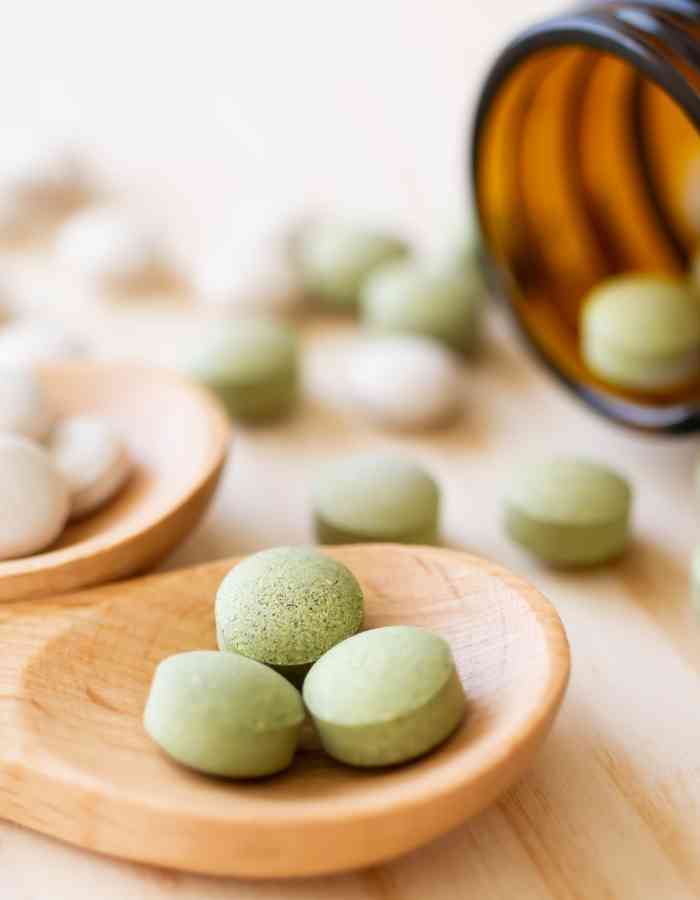Hyaluronic Acid Nutritional Supplements
Nutritional supplements, also called food or dietary supplements, provide the human body with the nutrients (minerals, vitamins, amino acids) that are not naturally produced by it in sufficient amounts to preserve optimum health.
Nutritional supplements can be consumed as tablets, pills, liquid, powders, or in other forms.
Hyaluronic acid supplements contain hyaluronic acid, a substance with essential benefits for our health.

What are HA Supplements, and How do They Work?
Hyaluronan or hyaluronic acid (HA) is a polysaccharide (a type of carbohydrate) that is usually produced by the human body, half of the total quantity being stored in the skin.
Hyaluronic acid ties to water molecules (locking water inside the cells) and maintains the skin hydrated and supple. HA is also present in joints, brain, heart valves, blood vessels, cartilage, and basically every connective tissue of the body.
Dietary hyaluronic acid can be obtained from the food you eat, so you might want to review your “to eat” list to make sure it contains citrus (such as grapefruits), soy-based foods (like tofu), and starchy root vegetables (such as sweet potatoes).
Hyaluronic acid supplements are synthesized forms of the acid obtained from rooster combs or bacteria processing in the laboratory and are used for medical and cosmetic purposes. These supplements are available in various forms, such as oral dietary supplements, beauty serums, face creams, injections, or eye drops.
When we are young, the body produces sufficient amounts of HA to keep us in good health. However, as we age, the natural production of hyaluronic acid in the body decreases, and this causes various health issues. Taking hyaluronic acid supplements helps prevent or treat different signs of aging and more.
Hyaluronic Acid Oral Supplements
As the years pass, the skin becomes more vulnerable to damaging exterior factors such as pollution or unhealthy habits such as smoking. Hyaluronic acid supplements have proven a valuable ally in fighting against the factors that cause the aging of our skin.
For example, researchers have shown that a dose of 120 to 240 milligrams of oral hyaluronic acid taken every day for at least one month improves skin moisture and provides better results in treatments for dry skin.

Hyaluronic Acid Supplement Benefits
Benefits for the Skin
Skin aging is a process that affects all people, and this process is accelerated, especially when the skin is not moisturized enough, a condition that causes wrinkles.
Hyaluronic acid supplements for skin retain water and provide the skin with the hydration it needs, reducing wrinkles and saggy appearance of the skin and fighting against the loss of elasticity and skin glow.
In 2017, a study conducted on 60 Japanese subjects affected by wrinkles showed that 120 mg of hyaluronic acid administered every day decreased their wrinkles after eight weeks. It improved their skin’s glow and elasticity after 12 weeks of treatment.
Hyaluronic acid can solve other skin problems such as:
- Decrease acne and the scarring caused by it: low-molecular-weight hyaluronic acid applied to participants in a study decreased both the acne and the acne scarring.
- Reduce eczema: in a study that compared the results of a hyaluronic acid-based foam and a ceramide-based emulsion, the subjects showed a decrease in mild eczema and redness, as well as amelioration of the irritation, erythema, itching, stinging, and burning.
- Improve elasticity: elasticity is the skin’s ability to stretch and return to its original shape, preventing wrinkles. However, as we age, this elasticity gets lost, a condition known as elastosis. Twenty-three women affected by elastosis were administered daily a dose of HA, and at the end of the study, they showed improved skin elasticity.
Benefits for Overall Health
Helps wounds heal faster: when tissue is damaged, hyaluronic acid signalizes the body to produce more blood vessels in the wounded area, fastening the healing process. When applied directly to the wound, HA diminishes the pain and the size of the damaged area.
Relieve eye discomfort: a review of studies published in March 2021 showed that compared to products that do not contain HA, hyaluronic acid eye drops could reduce dry eye symptoms (aching, discomfort, dry eye surface, visual impairment) in patients affected by dry eye syndrome (DES).
Hyaluronic Acid Supplements for Joints
A study published in 2017 indicated that HA injections reduced pain in patients suffering from rheumatoid arthritis and improved their physical function. Hyaluronic acid supplements bind to water and create a gel-like texture substance.
This viscous substance lubricates the joints, which results in less inflammation and less pain. These supplements also promote cartilage growth by stimulating the development of new cells, a valuable help in treating osteoarthritis, a degenerative disease that affects joints and causes pain and gradual limitation of movement.
Hyaluronic acid is also used as a remedy for knee pain. The FDA has approved hyaluronic acid injections as a treatment for arthritis. Compared to conventional treatments, these injections provide more pain relief as they restore the lining of the knee joints.

Hyaluronic Acid Supplements Side Effects
These supplements are, in general, safe for use as long as the administration instructions are followed. However, the hyaluronic acid supplements extracted from rooster’s comb can cause allergies to people who are allergic to chicken feathers, eggs, or protein.
If you have allergies, you can use a variant of supplements obtained from bacteria processing in the laboratory. Skincare products that contain hyaluronic acid should be tested before use, just like any other cosmetic product – by conducting a test patch.
Hyaluronic acid injections may provoke one or more of the following side effects on some people:
- swelling
- itching
- bruising
- redness
It’s good to know that these side effects are caused mainly by the injection, not by the hyaluronic acid itself and that they usually fade away in about seven days.
So far, researchers could not establish the impact of hyaluronic acid supplements on pregnant women, women who breastfeed, or children.
Can Collagen and Hyaluronic Acid Supplements Fight Against Skin Aging?
People who want to boost their skin’s appearance often use a mix of collagen and hyaluronic acid supplements. Hyaluronic acid promotes the natural production of collagen, which in turn gives the skin a firm, elastic, and refreshed look. Taken together, these supplements have an even more visible anti-aging effect.
According to Debra Jaliman, MD, author of “Skin Rules: Trade Secrets from a Top New York Dermatologist,” “taking hyaluronic acid and collagen supplements help incorporate extra amounts into the body which will eventually benefit your skin.”
Whether you want to rejuvenate your skin’s appearance or treat some of its conditions, alleviate your knee and joint pain, relieve your eye discomfort, or heal faster from a wound, hyaluronic acid supplements will help you meet your goal. Accessible, backed up by science, and in easy-to-use forms, these supplements will gain more ground in the medical and cosmetic industries.




